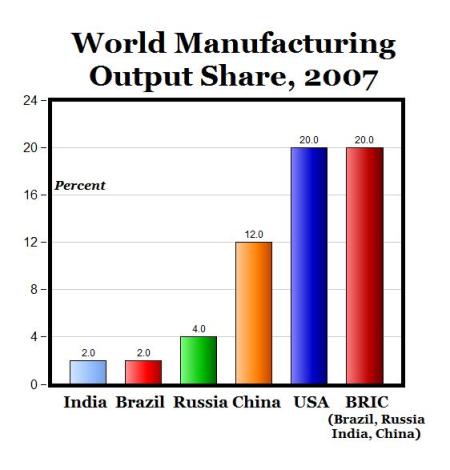Which would you rather hire- a plant manager or a profitability engineer?
The outlook is bleak for plant managers according to CBS News who listed the job title as one of the top ten positions in decline.
“Automation and offshoring will decimate the ranks of production managers by 2018. According to the BLS, employment will drop by 11,900 jobs from a 2008 total of 156,100. With faster machines and better productivity, one plant can do the work of two, squeezing managers out. Increased imports of manufactured goods will do additional damage… The outlook is equally bleak for managers in the computer, electronics, and auto parts industries.”
The BLS Outlook for Production Managers:
|
Occupational Title |
SOC Code |
Employment, 2008 |
Projected Employment, 2018 |
Change, 2008-18 |
Detailed Statistics |
||
|---|---|---|---|---|---|---|---|
|
Number |
Percent |
||||||
| Industrial production managers |
11-3051 |
156,100 | 144,100 | -11,900 | -8 |
[PDF] |
[XLS] |
| NOTE: Data in this table are rounded. | |||||||
“Industrial production managers plan, direct, and coordinate the production activities required to produce the vast array of goods manufactured every year in the United States. They make sure that production meets output and quality goals while remaining within budget. Depending on the size of the manufacturing plant, industrial production managers may oversee the entire plant or just one area of it. Industrial production managers devise methods to use the plant’s personnel and capital resources to best meet production goals. They may determine which machines will be used, whether new machines need to be purchased, whether overtime or extra shifts are necessary, and what the sequence of production will be. They monitor the production run to make sure that it stays on schedule, and they correct any problems that may arise.” BLS
Plan, Direct, Coordinate production activities- those sound like things the shop’s computerized systems do- or are supposed to do.

Here’s the position that they ought to be talking about: Profitability Engineer:
- Who is responsible for generating and increasing profits?
- Who is making sure the job is running at the cycle time and quality that it was quoted?
- Who is assuring that the parts won’t have systemic errors because of inadequacies in quality control?
- Who is helping to keep the machine cycles effective and efficient and pushing beyond “book” rates? That the jobs are run on machines to assure best utilization of your company’s investment in Horsepower?
The profitability engineer is the one human being who can do these things. Not a computer. Not a manager. Not a boss.
The gap between your technology’s capability and its current level of operational attainment is where your hidden profits will be found. Is there a profitability engineer in your house?
Many plant managers are in fact Profitability Engineers- maybe they ought to recognize that the value they add is not in managing a plant, but in engineering company profits.
Who is your company’s Profitability Engineer?



